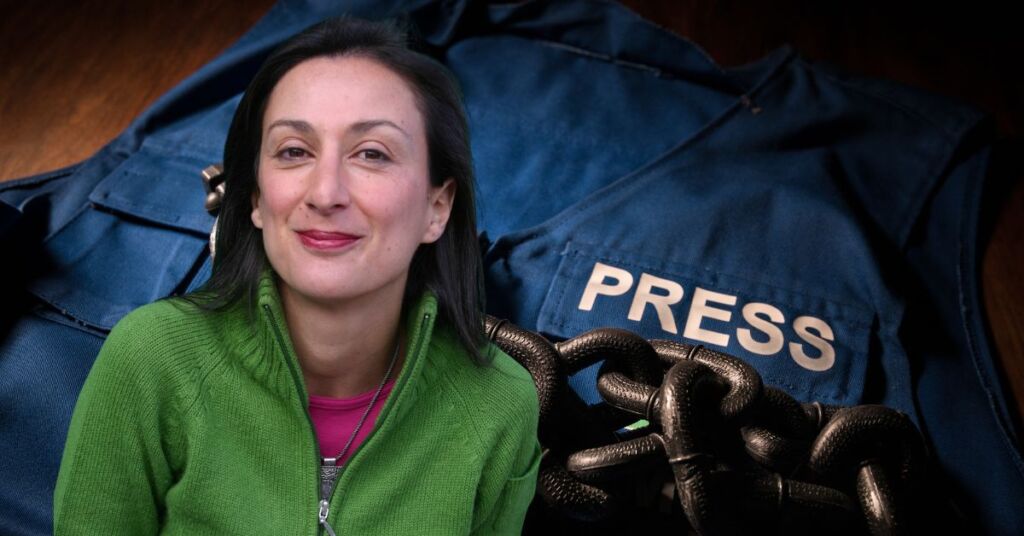Opinion: The Daphne Law – How A Murder In Malta Changed The EU’s Protection Of Journalists

Malta managed to climb a whole 11 places since the last World Press Freedom Index, but there’s more to our statistic than meets the eye.
The index, released annually by Reporters Without Borders (RSF), evaluates the environment for journalism in 180 countries and territories, and this year’s ranking provides an important reflection on how far some countries have come… and how far they have yet to go.
Coming in at 73rd after 2023’s 84th place, Malta is ranked second to last as far as EU member states’ Press Freedom Index goes and deems the press freedom situation as ‘‘problematic’’.
RSF’s official country file on Malta refers to the 2017 assassination of investigative journalist Daphne Caruana Galizia, stressing that “justice still hasn’t been fully served” a whole seven years later.
And it’s this turbulent environment in tiny Malta that has led to a vital legislative change across the European Union.
Despite global efforts, journalism remains a dangerous profession. Journalists play a crucial role in information dissemination but face harassment, imprisonment, violence, and even death for simply doing their jobs. The 105 journalists killed in Gaza are a prime example.
Looking at it from a global perspective, from 2016 to the end of 2020, UNESCO recorded 400 killings of journalists. The trend continued in 2024, with 15 journalists killed. In total, 1,670 Journalists have been killed since 1993 – that’s 31 years of continuous silence on the truth.
That’s not all: the global rate of exemption for killing journalists is high.
Nine times out of 10, the case remains unresolved. This creates a continuous cycle of violence where the number of journalist killings is high – as is the carte blanche for these murders.
At the same time, online violence and harassment are just a few that have been stirred into the pot of self-censorship and, sometimes, even physical attacks.
With record-high journalist imprisonments and 73% of women journalists surveyed by UNESCO reporting online violence in the course of their work, the profession is still clearly a dangerous one in more ways than one.
Women journalists seem to have suffered the brunt of many of these reports, with eight out of 10 in the Netherlands being victims of some form of aggression, intimidation, or violence in the past year. Almost a third of those women journalists surveyed by Persveilig experienced it every month.
It is within this all context that a law named after one of Malta’s most popular journalists ended up being implemented.
The Daphne Law, named after murdered Maltese journalist Daphne Caruana Galizia, aims to protect journalists and media freedom across the European Union. The law, officially known as the Anti-Strategic Lawsuit Against Public Participation (Anti-SLAPP) Directive, was driven by the personal experiences of Daphne’s family.
“Her experience was probably the most egregious in the European Union, but we found there were many other cases of journalists around Europe who were facing the same kind of reprisals for their journalism in Poland, Croatia, Italy, and France,” Matthew Caruana Galizia told Lovin Malta.
So, we said, ok, this isn’t just a Maltese problem, Malta might be the worst example in the European Union or among the worst, but it’s also a European problem and therefore the response has to be at a European level.”
Despite an 11-place climb in the World Press Freedom Index, Malta has failed to implement key recommendations from the Daphne Caruana Galizia inquiry to improve press freedom, including ensuring the independence of the police and Attorney General, establishing a public inquiry board for crimes against journalists, providing resources and protection for journalists, reforming libel laws, and enhancing government transparency and accountability.
The government has only implemented one of 28 recommendations, mishandled a report on media law reforms, and rushed through draft bills without proper consultation. The lack of implementation of the inquiry’s recommendations continues to hinder press freedom and accountability in Malta.
Presently, the risks don’t seem to be decreasing anytime soon, and the space to allow journalists to do their jobs is constrained. As journalists who fight for the truth more than ever, there is a sense of determination to tell the stories of our age so that readers have the information needed to act as voters, citizens consumers, and participants in the web of the earth.